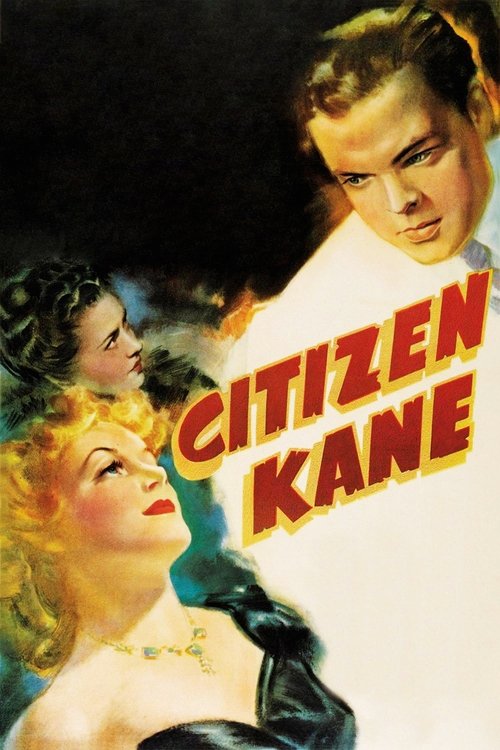
Title: Citizen Kane
Year: 1941
Director: Orson Welles
Writer: Herman J. Mankiewicz
Cast: Orson Welles (Charles Foster Kane),
Joseph Cotten (Jedediah Leland),
Dorothy Comingore (Susan Alexander Kane),
Ray Collins (Jim W. Gettys),
George Coulouris (Walter Parks Thatcher),
Runtime: 119 min.
Synopsis: Newspaper magnate Charles Foster Kane is taken from his mother as a boy and made the ward of a rich industrialist. As a result, every well-meaning, tyrannical or self-destructive move he makes for the rest of his life appears in some way to be a reaction to that deeply wounding event.
Rating: 7.997/10
"It’s terrific!" This enthusiastic, albeit simple, original marketing quote belies the profound depth and revolutionary nature of "Citizen Kane."
/10
Posted on May 31, 2025
Orson Welles’s Citizen Kane is a cinematic landmark that redefined storytelling, visual language, and the very possibilities of the medium. The film famously opens with the death of Charles Foster Kane (Orson Welles), a newspaper magnate whose last word, Rosebud, sends a reporter, Jerry Thompson (William Alland), on a quest to uncover the meaning of this enigmatic utterance and, in doing so, the true story of Kane’s complex and ultimately tragic life. Through a series of flashbacks narrated by Kane’s associates, the film pieces together a fragmented portrait of a man who sought love and power but ultimately found himself isolated and unfulfilled.
The cinematography, by Gregg Toland, is groundbreaking and influential. Toland’s innovative use of deep focus, allowing multiple planes of action to be in sharp focus simultaneously, created a sense of depth and realism never before seen. The dramatic low-angle shots, the stark lighting contrasts, and the fluid camera movements all contribute to the film’s visual dynamism and its ability to convey Kane’s imposing presence and the shifting perspectives of his life.
The acting performances are powerful and memorable. Orson Welles, in his directorial debut, delivers a commanding and multifaceted performance as Charles Foster Kane, capturing his charisma, his ambition, and his underlying vulnerability. The ensemble cast, including Joseph Cotten as Kane’s loyal friend Jedediah Leland, Dorothy Comingore as his second wife Susan Alexander, and Agnes Moorehead as his mother Mary Kane, provides rich and nuanced portrayals of the individuals who shaped Kane’s life and offer different perspectives on his enigmatic character.
The setting, spanning various locations from Kane’s childhood home in Colorado to his opulent estate Xanadu, visually reflects his rise and eventual isolation. The grandeur and emptiness of Xanadu serve as a potent symbol of his unfulfilled desires and his inability to find lasting happiness. The costume design effectively portrays the different eras of Kane’s life and the social strata he navigates.
Bernard Herrmann’s film score, his first for a feature film, is dramatic and evocative, perfectly capturing the epic scope of Kane’s life and the underlying melancholy of his story. The score’s memorable themes and its innovative use of orchestration contribute significantly to the film’s emotional impact and its enduring power.
The screenplay, co-written by Orson Welles and Herman J. Mankiewicz, is a masterpiece of narrative structure and character development. The non-linear storytelling, told through multiple perspectives, creates a rich and complex portrait of Kane, leaving the audience to piece together the truth of his life. The dialogue is sharp and insightful, exploring themes of power, wealth, love, loss, and the elusive nature of identity.
Citizen Kane is a cinematic milestone that continues to be studied and admired for its innovative techniques and its profound exploration of the American dream and the complexities of human nature. Its enduring influence on filmmaking is undeniable, solidifying its place as one of the greatest films ever made.
0
0
